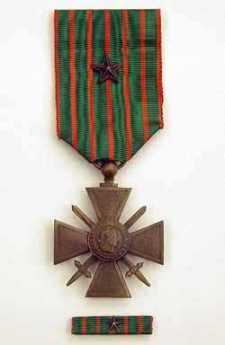Related Topics
Philadelphia Legal Scene
The American legal profession grew up in this town, creating institutions and traditions that set the style for everyone else. Boston, New York and Washington have lots of influential lawyers, but Philadelphia shapes the legal profession.
Favorite Reflections
 In no particular order, here are the author's own favorites.
In no particular order, here are the author's own favorites.
Reminiscences
"The past is never dead. It's not even past." -- William Faulkner, Requiem for a Nun
In Memoriam
Charles Peterson
Lewis B, Flinn, M.D.Wilton A. Doane,MD
Henry Cadbury
Martin Orne, MD, PhDGeorge W. Gowen, MD
Kenneth Gordon, MD
Mary Stuart Fisher, MDOrville P. Horwitz,MD
Lewis Harlow van Dusen, Jr.
Hobart Reiman, MD.
Lindley B. Reagan, M.D.
Allan v. Heely
Frederick Mason Jones, Jr.
Russell Roth,MD
George Willoughby
Earle B. Twitchell
Jonathan Evans Rhoads, Sr.
Garfield G. Duncan,MD
Hastings Griffin
Joseph P. Nicholson
Howard LewisAl DriscollHenry Bockus, MD
Mary Dunn
William H. Taylor
Abraham Rosenthal
Favorites - II
More favorites. Under construction.
Chapter Six: Constitutions: What's So Good About Ours; Why Does Europe's Fail Them?1793-70
Lewis Harlow van Dusen, Jr. (1910-2004)

|
| Croix de Guerre |
Lew van Dusen was one of the great story-tellers of a story-telling city. In one continuous lunch conversation he could string together personal anecdotes about Lloyd George, Lawrence of Arabia, William Bingham, the making of the hydrogen bomb, the Croix de Guerre (which he had been awarded), Nicholas Murray Butler, several Supreme Court Justices, Harvard Law School (where he led the class), and on and on until the waitress would just go ahead and clear the table. He even told of his own great suffering as a boy sitting at proper Philadelphia dinners, where it was a firm rule that acceptable topics of conversation were limited to the Wimbledon lawn tennis matches and the sinking of the Titanic.
When the landmark U.S. Supreme Court case of State Oil v. Kahn came up for arguments, he and I rode together on the Metroliner down to Washington, stayed at a club there, and after the hearing took the train back to Philadelphia. During the entire time, Lew never stopped talking, and his voice was very loud. There was the time in Macao when a retired British diplomat came up to him and said he knew the history of every gravestone in the cemetery for foreigners, except five, and two of those names were on the letterhead of Lew's firm (Drinker, Biddle and Reath). Drinker, it turns out, was American consul and discovered that all of his guests were poisoned by the cook. He traveled all night, getting stomachs pumped out, but not his own, and died the next morning from the poison. Biddle, on the other hand, was also a physician interested in Yellow Fever and died of it when he contracted the disease from one of the subjects.
There was the time when he was the young guest of Nicholas Murray Butler at a luncheon with British Prime Minister Lloyd George. "Tell Mr. Roosevelt," said George, "That Social Security is nothing but a dole."
And the time when King George gave everybody the day off on his 25th Anniversary as King, so they played cricket. His teammate was Lawrence of Arabia, and after the game, Lawrence hopped on his motorcycle and rode off down the road to be killed. Lew was the last person to see Lawrence alive.
Well, when you get to the Supreme Court, the public stands in line on the steps, out in the rain. But the lawyers go around to the back door, where there are a lounge and a lunchroom. Inside two minutes, Lew was surrounded by lawyers as he told more stories. One of them tugged my sleeve and asked, "Is that who I think it is?" I said I supposed so, although who he had in mind is still a mystery to me.
State Oil turns out to have been as important to antitrust law as we supposed it would be; the fine points of vertical integration were afterward explained to me. And finally, I was told how, when he was chairman of the Ethics committee of the American Bar Association, Lew's committee caused the ABA to reverse its long-standing opposition to cameras and audio equipment in courtrooms. The effect of this has been slow, but gradually courts are permitting the televising of trials, and eventually they probably all will permit it. But not yet the U.S. Supreme Court. Non-lawyers still stand in the rain outside, and if there are no seats left inside, too bad.
Originally published: Friday, June 23, 2006; most-recently modified: Thursday, May 23, 2019
| Posted by: George Fisher | Sep 10, 2008 1:33 PM |
The last people to speak to Lawrence were the guards at the gate to the military camp, who he chatted to briefly. After the crash he lay in a coma until 19 May, when he died.
Lawrence retired from the airforce a few months before he died, so did not need a day off.
Memories become hazy after years, and Lew possibly met Lawrence on another occasion.
Gavin Foster
Durban, South Africa
| Posted by: Gavin Foster | Sep 10, 2008 6:12 AM |